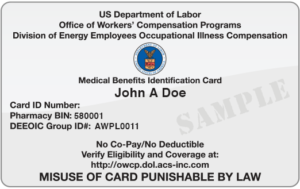Typically, Medicare does not cover the costs of assisted living facilities or other long-term care facilities. You have to pay for them either with cash or through some sort of financial assistance program. There may be options like long-term life insurance, veterans’ benefits, or EEOICPA and RECA for select workers of certain industries.
For Medicare to cover assisted living, you can try to get approval for healthcare costs while your family member is staying at a particular facility. Medicare is typically used to cover skilled nursing home or home health care expenses.
Try Medicaid over Medicare
Assisted living facilities are for people who can still live independently but need a little help. The costs can add up quickly, with some estimates between $2,000 to more than $6,000 a month. While Medicare might not pay for this, Medicaid might. It’s worth looking into whether you qualify and what the procedures are.
Almost all states and the District of Columbia now provide some type of financial help when it comes to assisted living facilities. Although the states might provide coverage, the level and type varies greatly depending on what state you are in. If you are in a state that prohibits Medicaid from paying room and board, there may be workarounds. And, the coverage might be covered under some other part of the program rather than Medicaid itself.
Qualifying for Medicaid is based on need. It is a federal program that will look back at your last five years to determine eligibility. This means they will comb through your financials for the last five years to determine whether or not you are hiding anything and whether you qualify.
What does Medicare Cover?
As previously mentioned, Medicare typically only covers expenses related to home health care or a skilled nursing facility. There may be select exceptions in very rare cases, but in general they will not pay out to cover custodial care costs, so you need to be prepared for this.
In order to get Medicare to foot some or all of the bill, you need to look at alternative options to a regular assisted living facility. You should start by talking to doctors, a social worker, counselor, your family, and other healthcare providers who can assist with deciding what type of long-term care is best. This is a must in the event you are currently in the hospital and will be transitioning to a nursing home or working with a home health agency, like a social worker or discharge planner.
Under Part A coverage, Medicare will pay for up to 100 days of a skilled nursing care facility. After that, you may need to look at whether you qualify for Medicaid, which does cover long term care services, or a long-term care insurance policy. Medicaid is actually the largest payer of long-term care services and will also pay for additional nursing home care.
Hire an Experienced Home Healthcare Worker
One alternative is to hire an experienced home healthcare worker who can help provide the day-to-day support and supervision your loved one needs. If your loved one qualifies for free home healthcare services due to the Radiation Exposure Compensation Act (RECA) or the Energy Employees Occupational Illness Compensation Program (EEOICPA), contact the team at United Energy Workers Healthcare and Four Corners Health Care to schedule an initial consultation and learn more about our services.
Who We Serve
Do you have this card?

If you already have this card, then you are already approved to receive no-cost medical benefits! Call us to get started today.
In order to be eligible for EEOICPA/RECA benefits, an individual must have been employed at a covered Department of Energy facility, an approved atomic weapons facility, or at a permitted beryllium vendor. An individual must also have one of the covered conditions as a result of exposure to radiation, beryllium, or silica while employed at an accepted facility. In addition, uranium miners, millers, and ore transporters are eligible for benefits if they develop an illness as a result of exposure to toxic substances (such as radiation, chemicals, solvents, acids, and metals) and worked at a facility covered under RECA. Eligibility requirements vary by location and condition.